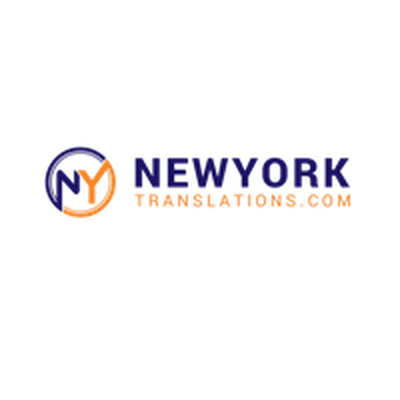More from New York Translations
More in Politics
Related Blogs
Archivo
compartir social
What are the Challenges of Business Document Translation and How DO Experts Deal With Them?
Publicado por New York Translations
Cuerpo
Translation of business documents is an essential component of global communication and international operations. The necessity for precise and trustworthy translation of diverse business documents grows as businesses expand internationally. However, there are several difficulties with this approach. A number of challenges, such as linguistic quirks and cultural disparities, must be overcome to guarantee accurate and successful translations. This blog will highlight five major obstacles to business document translation and how professionals overcome them.
Linguistic Complexities
It can be challenging to translate business documents correctly since they frequently contain idioms, jargon, and terminology unique to the industry. Furthermore, the grammatical structures of different languages differ, which can cause misunderstandings or meaning loss if not handled correctly. Expert translators have in-depth knowledge of the subject matter and a profound awareness of both the source and target languages to overcome this difficulty. Moreover, to guarantee precise and uniform terminology, they depend on glossaries, style guides, and specialist translation technologies.
Cultural Differences
Business papers are more than just word lists; they have cultural meanings and repercussions. In one culture, anything that is acceptable or understood could be viewed differently in another. Because they are familiar with the subtle cultural differences of the target audience, expert translators can modify the translation so that it is understood by the intended audience. Their consideration of regional norms, principles, and modes of communication guarantees that the translated text is not only grammatically precise but also culturally suitable.
Confidentiality and Data Security
Sensitive or private information, including financial data, trade secrets, or proprietary information, comes with business documents. This is why the highest level of secrecy and data security is crucial when translating. Strict nondisclosure agreements are followed by reputable translation services and qualified translators, and strong security measures are put in place to safeguard client information. This comprises encrypted communication channels, secure file transfer methods, and access restrictions to guarantee that critical documents are handled by authorized individuals only.
Subject Matter Expertise
Legal contracts and technical manuals are only two examples of the many sectors and subject areas that are covered in business documents. These materials need to be translated with both linguistic fluency and in-depth subject matter understanding. This is why translation agencies often offer specialized translation services to meet needs such as technical document translation. Moreover, specializing in fields like finance, law, engineering, or healthcare, expert translators guarantee that translators have the skills and background needed to faithfully translate the subtleties and intended meaning of the original text.
Time and Resources
Translations must be delivered on time in the hectic corporate world of today. To expedite the translation process, seasoned translation firms and independent translators use effective project management techniques. To increase efficiency and uniformity, they make use of cutting-edge translation technology including machine translation programs and computer-assisted translation tools. In order to guarantee that projects are sent to the most competent translators, they also make use of resource allocation methods, which reduce turnaround times and maximize quality.
The translation of business documents is a complicated process. Expert translators ensure that organizations can communicate successfully across boundaries, promoting global collaboration and success, by comprehending and overcoming these problems.











Comentarios